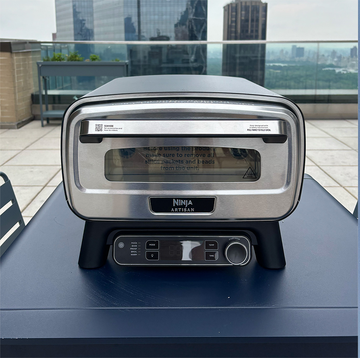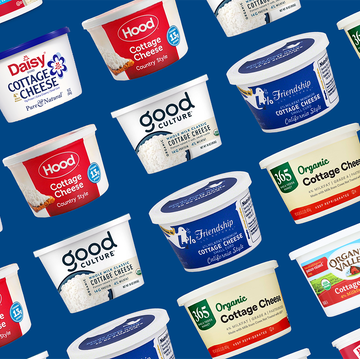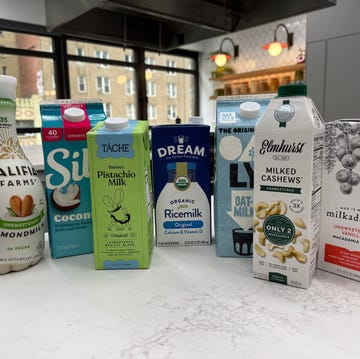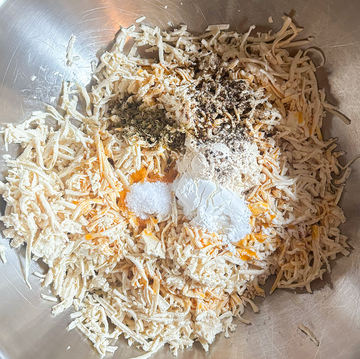If you're one of the 64% of Americans who kickstart their mornings with a healthy dose of caffeine, you likely have a go-to drink you always reach for. Some people hit up their local espresso bar, while others opt for a vanilla latte. And if coffee isn't your speed, you likely turn to tea, of which there are countless varieties. Of late, matcha has increased in popularity in the United States, with social conversations regarding the beverage up 45% from the previous year. While both coffee and matcha serve as great sources of caffeine for those who need some help waking up in the a.m., is one actually better for you than the other? Let's dive in.
Health Benefits Of Matcha
There has been extensive research into the health benefits of matcha green tea, and it has been found that consuming the beverage regularly helps to reduce oxidative stress and inflammation. Additionally, Angela Garcia RDN, CSOWM, LD, informs us that green tea is also a rich source of phytochemicals, in particular epigallocatechin gallate (EGCG). "EGCG can inhibit cancer cell activity and boost immunity, lowering the risks of hormone-driven cancers such as breast, ovarian, bladder, esophageal, and prostate," she explains. Not only that, but matcha is also known to reduce the risk of cardiovascular disease (CVD), obesity, type 2 diabetes, and neurodegeneration. Lastly, Garcia shares that "green tea consumption can improve skin health, especially hormone-related acne," as well. It's an overall powerhouse if you ask me.
And when it comes to caffeine, matcha contains about half the amount of coffee. Interestingly though, the affects of it last longer, up to eight hours, without any of the post-caffeine slumps or jitters that can often occur when consuming coffee. This is because matcha contains L-theanine, an amino acid that slows down the release of caffeine.
Health Benefits Of Coffee
Similar to matcha, coffee also has anti-inflammatory properties, which aid in reducing the risk of getting type 2 diabetes. Another commonality is that drinking coffee—even decaffeinated coffee—may reduce the risk of CVD, although Garcia notes that the research here is purely observational and that more studies are needed to confirm this. According to Mayo Clinic, drinking coffee regularly can also lower your risk of metabolic syndrome, liver disease, and even Alzheimer's.
Overall, the two share many of the same health benefits: both are packed with antioxidants, improve heart health, and can enhance mood and brain function. Plus, both may help you lose weight.
The Differences Between Matcha & Coffee
While both of these beverages provide a notable dose of caffeine, the way in which your body absorbs it is a bit different. Those who drink coffee may notice an increase in anxiety, while the L-theanine present in matcha has anti-anxiety effects. "It takes the edge off stress and promotes a calm mind without affecting alertness," notes Garcia.
Aside from differing price points (matcha is generally more expensive), matcha and coffee deviate in a few other areas, as well. Coffee, for one, can have some unwanted side effects. These include the aforementioned anxiety and jitters, as well as dependency, insomnia, headaches, and increased heart rate. Matcha has its drawbacks as well—it can be contaminated with heavy metals like lead and arsenic, and it poses a risk of liver toxicity due to its high levels of EGCG (although more research is needed on this topic).
Bottom Line
Consuming either of these beverages is not going to steer you in the wrong direction, but Garcia recommends matcha over coffee, as it has more health benefits than coffee, and you can consume several cups daily without any ill effects. "I would not completely take away the joy of drinking coffee, and 1-2 cups per day appears to be okay," she explains. "Of concern would be the overconsumption of caffeine and the anxiety-inducing effects for some coffee drinkers."
Our recommendation? Try both to find what works best for you. And if you fall in love with matcha, we have plenty of recipes you'll love.













